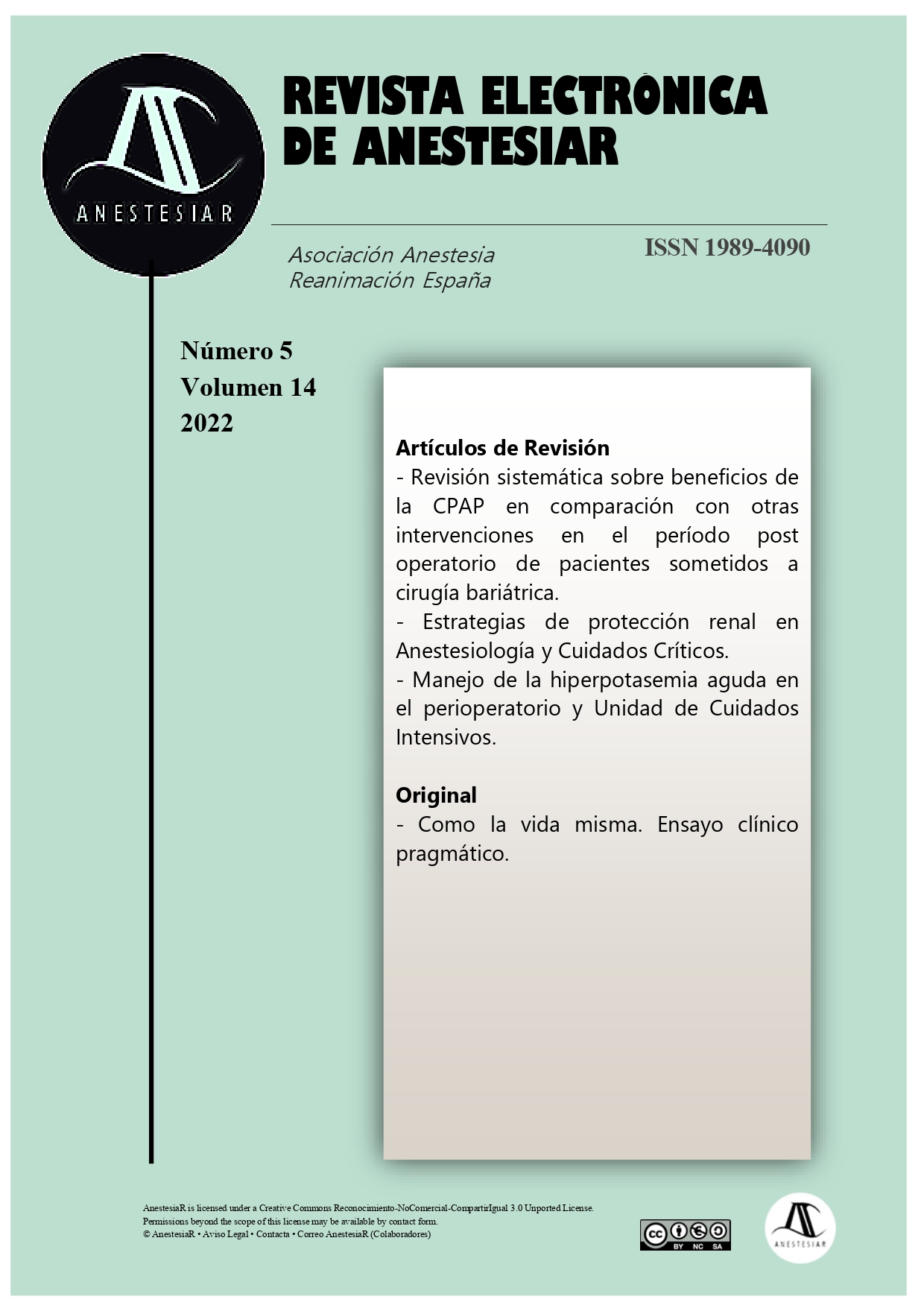Management of acute hyperpotasemia in the perioperatory and Intensive Care Unit
DOI:
https://doi.org/10.30445/rear.v14i5.999Keywords:
Hyperkalemia, perioperative period, intensive careAbstract
Acute hyperkalemia occurs frequently in perioperative period. It’s defined as an elevation of serum potassium above 5-5.5 mmol / L, in the case of severe hyperkalemia that is above 6.5 mmol / L. Knowing multiple factors that can alter potassium homeostasis and lead to serious elevations helps us to minimize or avoid the possible complications associated with this entity. Treatment of hyperkalemia will include antagonizing the effect of elevated serum potassium, displacing potassium from the extracellular to the intracellular compartment, and removing potassium from the body. The purpose of this review is to review the pathophysiology of potassium management, emphasize main clinical manifestations, and provide a summary of main therapeutic tools.
References
- Kovesdy CP. Updates in hyperkalemia: Outcomes and therapeutic strategies. Rev Endocr Metab Disord. marzo de 2017;18(1):41-7.
- Palmer BF, Clegg DJ. Diagnosis and treatment of hyperkalemia. Cleve Clin J Med. 1 de diciembre de 2017;84(12):934-42.
- Evans KJ, Greenberg A. Hyperkalemia: a review. J Intensive Care Med. octubre de 2005;20(5):272-90.
- Vaughan RS. Potassium in the perioperative period. BJA Br J Anaesth. 1 de agosto de 1991;67(2):194-200.
- Lawrence S. Weisberg, MD. Management of severe hyperkalemia. 2008. 16(12).
- Bernasconi A, Zotta E, Ortemberg M, Albarracín L, Musso C, Koland I, et al. Trastornos del potasio: Herramientas diagnósticas y terapéuticas. Diálisis Traspl. 2013;10.
- Tetzlaff JE, O’Hara JF, Walsh MT. Potassium and anaesthesia. Can J Anaesth J Can Anesth. marzo de 1993;40(3):227-46.
- Ayach T, Nappo RW, Paugh-Miller JL, Ross EA. Postoperative hyperkalemia. Eur J Intern Med. marzo de 2015;26(2):106-11.
- González-Castro A, Ortiz-Lasa M, Rodriguez-Borregan JC, Rodrigo Calabia E, Ruiz San Millan JC, Dierssen Soto T. Influence of Proportion of Normal Saline Administered in the Perioperative Period of Renal Transplantation on Kalemia Levels. Transplant Proc. marzo de 2018;50(2):569-71.
Downloads
Published
How to Cite
Issue
Section
License
Copyright (c) 2022 Revista Electrónica AnestesiaR

This work is licensed under a Creative Commons Attribution-ShareAlike 4.0 International License.
 Envío y derechos de autor
Envío y derechos de autor


 Revista Electrónica AnestesiaR by
Revista Electrónica AnestesiaR by 